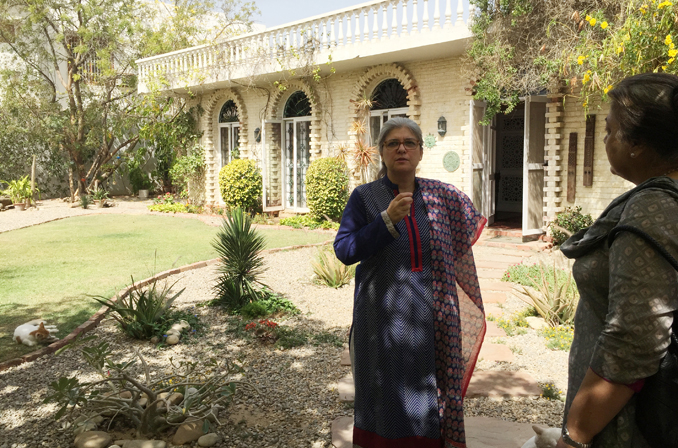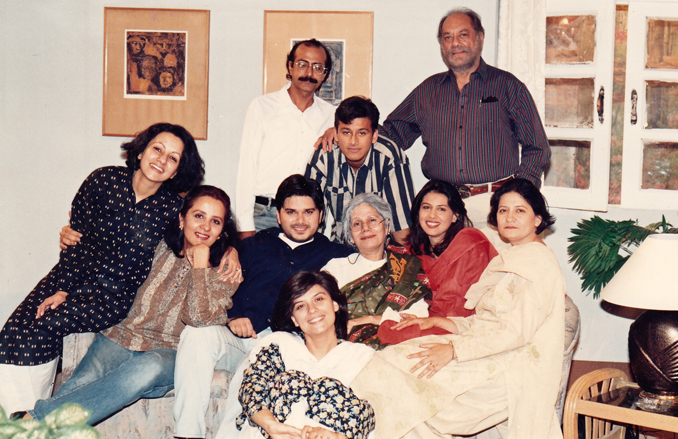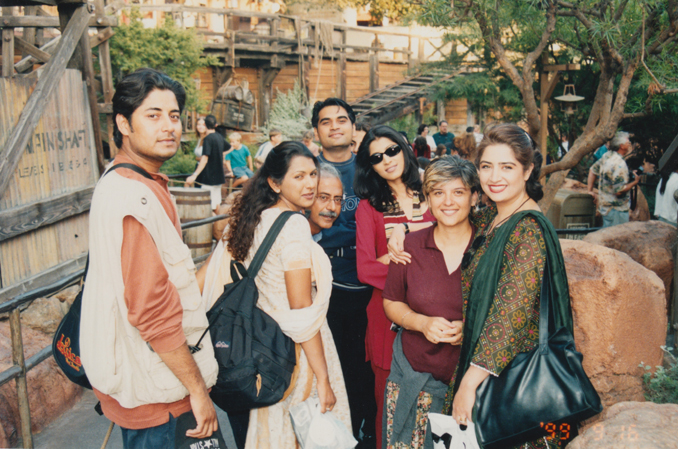Written by: Dr. Dushka H. Saiyid
Posted on: April 13, 2015 | 
Unlike most celebrities, agrees to an interview without any fuss. As on screen, so in real life, she has an unpretentious and bubbly personality, who doesn’t quite fit the mold; it might be because of her mixed parentage, a Pushtun father and an English mother. Almost thirty years have passed since she burst onto our television screens, a lissome, insouciant girl with a shock of raven black hair, cut unconventionally short.

She was an athlete in school, with little interest in school plays, and even less in academics, but her mother was a film and television buff, and that exposed her to the world of acting. She had accompanied her friend, who was acting in a play, to the television station, and caught the eye of the legendary director Shehzad Khalil. He was auditioning actors for Nishan-e-Haider and looking for a fresh face, and she fit the bill. She made her debut on television as the love interest of Rashid Minhas, and later also did the mini-series Ahsaas with Shahzad Khalil. When the casting for Tanhaiyaan was taking place, Hasina Moin had reservations about Her suitability as Sania, but it was Shehzad Khalil who pushed for her. She took the country by storm as the innocent and vivacious younger sister of an anxiety prone, smoldering Zara, played by Shahnaz Sheikh. She waxes eloquent about the brilliance of Shahzad Khalil as a director, and describes him as “a great human being”, and shows me a picture of her dancing with him at her wedding in ’89. A week later he was no more; a sudden heart attack had deprived her of her mentor, and Pakistan of a highly gifted director, who was only forty-three years old and at the prime of his career.

The question that nags me is, why has this star of the 80s and 90s disappeared from our television screens? She is surprisingly direct and candid: she woke up one morning, about fifteen or sixteen years back, with the realization that she was not enjoying acting any more. She attributes her disenchantment to the changed circumstances in television productions: lack of professionalism and the absence of a good team. She declares that, “if you can’t have an intelligent conversation with the team, then it’s frustrating”. She ruefully recalls that the quality of plays and directors went down, and the Pakistan Television (PTV) stagnated, while the private channels have no system, and the level of cast and crew is poor. Actors have become dominant, creating an imbalance, while “in my time, the Director was the master of the ship”.

She and her husband, Jaleel Akhter, had saved some money and decided to direct. They did a romantic comedy, Ghar To Akhir Apna Hai for NTM, which was a success. A cooking show for NTM followed, which had about 50-60 episodes. The husband and wife team then produced Umeed-e-Seher, a romance about a kid who is about to join the Pakistan cricket team and discovers he has cancer. Indus ran it as a serial of half an hour each. In the late 90s she took to directing, and did a number of serials and long plays. Very recently she again did a career shift when A&B (Geo productions) offered her a job, and she was happy to take up the challenge. Her latest venture into acting has been under the direction of Mehreen Jabbar, that she thoroughly enjoyed. It is part of a project in which six telefilms will be made in Pakistan, and another six in India, all by different directors.
You may also like: